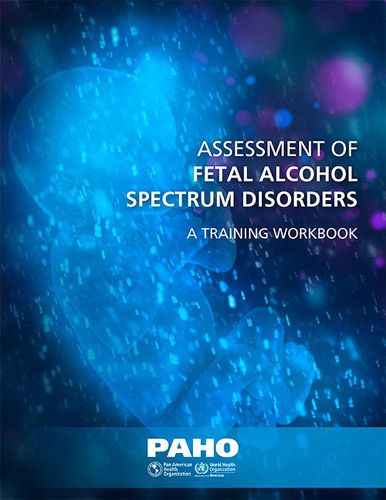Readings Newsletter
Become a Readings Member to make your shopping experience even easier.
Sign in or sign up for free!
You’re not far away from qualifying for FREE standard shipping within Australia
You’ve qualified for FREE standard shipping within Australia
The cart is loading…






Fetal alcohol spectrum disorders (FASD) represent a range of physical, mental, and behavioral disabilities caused by alcohol use during pregnancy, or prenatal alcohol exposure (PAE). FASDs are considered to be one of the leading preventable causes of developmental disability. Despite its high prevalence, FASD is often misdiagnosed or underdiagnosed, making interventions more challenging or delayed. Earlier diagnosis yields greater benefits for affected children, which include a reduction in secondary disabilities such as substance use disorders and learning and cognitive disabilities leading to school failure, and improved life outcomes. Most importantly, diagnosis provides a context for understanding a child’s behavior. When the environment surrounding a child with an FASD opts to focus on the child’s strengths as a means for intervention, there is a greater likelihood of that child achieving success as an adult. Diagnosis of FASD is further beneficial to the extent that it leads to a reduction of future births of children with FASD. This publication was initially developed for use in Spanish-speaking countries of the Americas and is intended to serve as a training workbook for providers of various disciplines to learn about the fundamentals of diagnosing FASD and to apply them to several case scenarios. It also discusses ethical implications of diagnosing FASD to the mother and child. Target audiences include physicians, psychologists, allied health professionals, social workers, and other providers that may encounter individuals affected by FASD. It is ideally used as a supplement for in-person training by experts in the fields of dysmorphology, epidemiology, and neuropsychology.
$9.00 standard shipping within Australia
FREE standard shipping within Australia for orders over $100.00
Express & International shipping calculated at checkout
Fetal alcohol spectrum disorders (FASD) represent a range of physical, mental, and behavioral disabilities caused by alcohol use during pregnancy, or prenatal alcohol exposure (PAE). FASDs are considered to be one of the leading preventable causes of developmental disability. Despite its high prevalence, FASD is often misdiagnosed or underdiagnosed, making interventions more challenging or delayed. Earlier diagnosis yields greater benefits for affected children, which include a reduction in secondary disabilities such as substance use disorders and learning and cognitive disabilities leading to school failure, and improved life outcomes. Most importantly, diagnosis provides a context for understanding a child’s behavior. When the environment surrounding a child with an FASD opts to focus on the child’s strengths as a means for intervention, there is a greater likelihood of that child achieving success as an adult. Diagnosis of FASD is further beneficial to the extent that it leads to a reduction of future births of children with FASD. This publication was initially developed for use in Spanish-speaking countries of the Americas and is intended to serve as a training workbook for providers of various disciplines to learn about the fundamentals of diagnosing FASD and to apply them to several case scenarios. It also discusses ethical implications of diagnosing FASD to the mother and child. Target audiences include physicians, psychologists, allied health professionals, social workers, and other providers that may encounter individuals affected by FASD. It is ideally used as a supplement for in-person training by experts in the fields of dysmorphology, epidemiology, and neuropsychology.